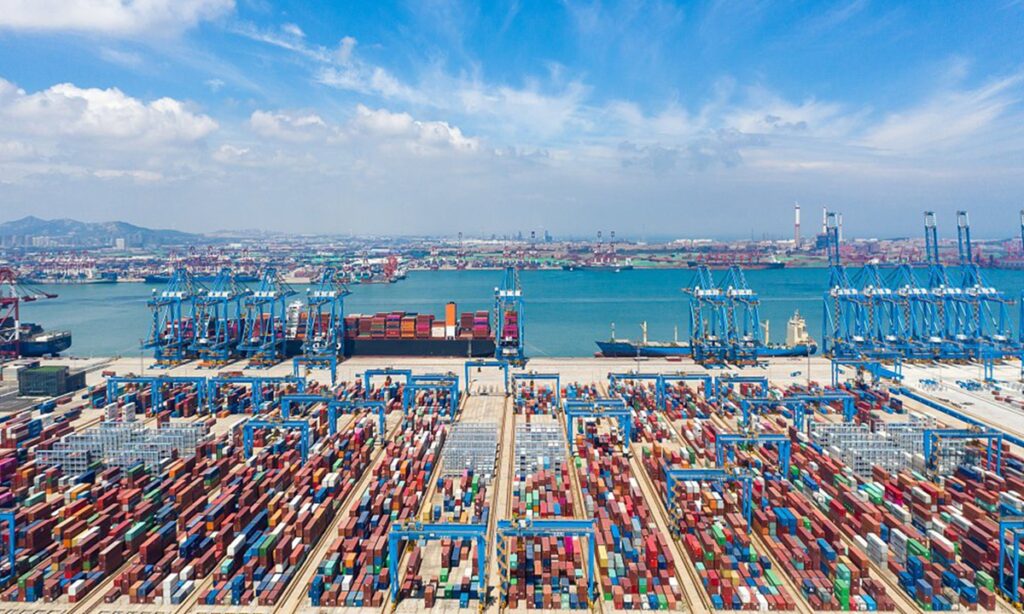China will implement provisional import tariff rates lower than the most favored nation rates on 1,010 goods starting from January 1, 2024, in a move that showcases the country’s resolve in further opening-up, facilitates trade and smooths supply chains, in sharp contrast with certain countries’ practice of erecting tariff barriers and advocating protectionism and decoupling.
In addition to supporting China’s economy by leveraging trade, the adjustments aim to continuously promote high-level opening-up and push forward the construction of an open world economy, read an official statement released by the Customs Tariff Commission of the State Council on Thursday.
China will implement tariff rates on some commodities under 20 agreements that originate from 30 countries or regions in 2024 based on free trade agreements (FTAs) or other preferential trade arrangements. The China-Nicaragua FTA will come into force on January 1, 2024 with tariffs cuts to be implemented.
Preferential tariff rates will continue to be applied in 2024 to least-developed countries that have established diplomatic relations with China and completed relevant procedures.
This reflects China’s support for the development of these countries as a responsible major country, Li Yong, a senior research fellow at the China Association of International Trade, told the Global Times on Thursday.
The adjustments demonstrate China’s continued actions in promoting high-quality opening-up, which are in sharp contrast with some countries and regions that have purposely increased tariffs targeting trade with China or utilized tariffs against China, Li said.
The adjustments aim to enhance the connection between the domestic and international markets and maintain the stability and smoothness of China’s industry and supply chains, according to the statement.
The 1,010 items cover a wide range of products. The import tariffs on shortage resources such as lithium chloride, key equipment and parts will be reduced in a bid to accelerate the innovative development of advanced manufacturing industries.
Some items will become duty-free, such as some oncology drugs, and drugs and raw materials for rare diseases, while import tariffs on food formulas for special medical purposes will be lowered for the sake of protecting people’s lives and health and meeting the population’s consumption needs with high-quality supply.
The import tariffs on sweet corn, coriander and burdock seeds will be cut. In addition, export tariffs on high-purity aluminum will be cut in order to promote the development of the new materials industry.
The adjustments will lower import tariffs on parts and materials for some strategic emerging industries, which will further smooth these industries’ operations and benefit exports, Hu Qimu, a deputy secretary-general of the digital-real economies integration Forum 50, told the Global Times on Thursday.
The tariff adjustments will help enterprises to lower costs, and the move aligns with China’s priorities for economic development, Li said.
Hu said that favorable policies like these tariff adjustments, along with moves to lower costs for corresponding companies, will further stimulate new dynamics in China’s foreign trade. He said that it was important to stabilize trade as a solid base for the nation’s economic development despite challenges.
The just concluded Central Work Economic Conference vowed that efforts should be made to foster new drivers of foreign trade, consolidate the overall performance of foreign trade and foreign capital, and expand the intermediate goods trade, services trade, digital trade and cross-border e-commerce exports, the Xinhua News Agency reported.
The statement also outlined other major changes, such as adding new tax items and increasing the import tariffs for some products like propylene.




